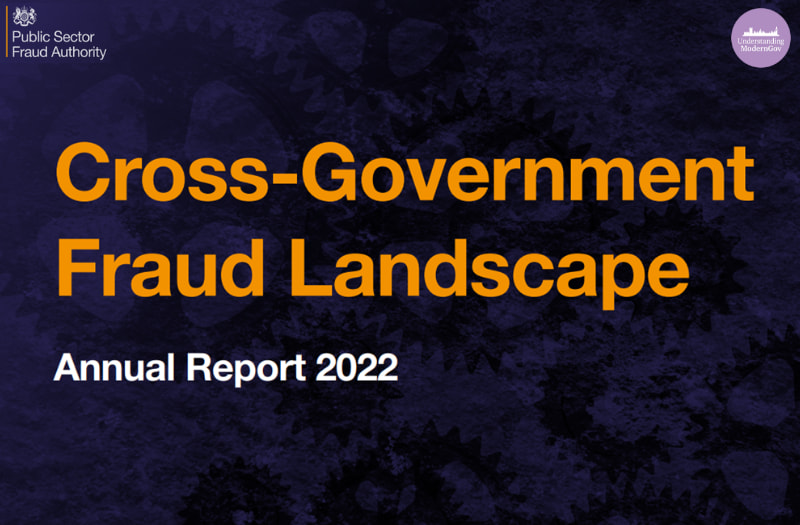Summary: Cross-Government Fraud Landscape Annual Report 2022
 Ross McDermott
·
2 minute read
Ross McDermott
·
2 minute read
The recently released Cross Government Fraud Landscape Annual Report 2022 covers the financial year 2020/21 and highlights the government's work in response to fraud and error loss in the public sector. Including Key figures and how the government responded to fraud and error loss during the Covid-19 pandemic.
Here’s a brief summary of some of the key findings from the report.
The Key Figures
As a result of being delayed by the Covid-19 pandemic, the report covers the financial year 2020/21. To understand the figures It’s important to highlight the government’s definitions between Fraud and Error.
Fraud is considered on the balance of probabilities whether or not an action or inaction was likely to have been taken with the intention of defrauding the taxpayer. It is judged as fraud by a department if it is more likely than not to have occurred and doesn’t need to be proven to a criminal standard.
Error is defined as losses arising from unintentional events, processing errors and official government errors, and are judged without fraudulent intent.
Here are some of the key figures relating to public sector fraud and error loss within the report:
-
Detected fraud rose from £227m in 2019/20 to £243m in 2020/21
-
Detected fraud and error rose from £310m in 2019/20 to £525m in 2020/21
-
Prevented fraud and error rose from £388m in 2019/20 to £653m in 2020/21
-
Recovered fraud and error rose from £92m in 2019/20 to £193m in 2020/21
Trends From Previous Years
When looking at previous years and excluding anomalies, detected errors seemed to have a large increase from 2019/2020 to 2020/21, rising from approximately £82m to £282m, a significantly larger amount than the previously mentioned detected fraud figure.
The government have also seen a decrease in internal fraud and an increase in external fraud from 2019/2020 to 2020/2021, with internal fraud decreasing from £24.7m to £19m and external fraud rising from £202.6m to £223.9m. Much of the external fraud increase may be attributed to fraud through loans, having a significant increase from 2019/2020 to 2020/21, rising from £0.1m to 43.1m.
The government have come under criticism for their response to the Covid-19 pandemic and their handling of loans, including the introduction of the bounce-back loan scheme. Gareth Davies, head of the National Audit Office (an independent public spending watchdog), argued in December 2021 that the “Government prioritised getting Bounce Back Loans to small businesses quickly but failed to put adequate fraud prevention measures in place. One impact of these decisions is apparent in the high levels of estimated fraud.”
For further examples and ways to identify internal and external fraud, check out our 5 tips to counter fraud in the public sector.
Moving Forward
Along with the criticism of bounce-back loans, recently the National Audit Office has suggested £21bn of public money has been lost in fraud since the COVID-19 pandemic began, with it being “very unlikely” that it will be recovered.
In an attempt to modernise the fraud and error response, the government announced the creation of the Public Sector Fraud Authority in the Spring Statement of March 2022. The aim is “to build deeper and broader expert-led services to support government departments and public bodies to reduce the impact of fraud.”
For further stats and figures read the full Cross-Government Fraud Landscape Annual Report 2022.
Want to Ensure Your Organisation is Adequately Prepared to Identify, Prevent and Tackle Cases of Fraud? Join Our Counter-Fraud Training Course
Gain the necessary tools and techniques to identify, prevent and tackle cases of fraud with our expert-led Counter-Fraud Training for the Public Sector course.
Previous experience in EdTech and public sector training. Striving to provide public sector professionals with resources and content to improve their skills and achieve their goals.






%20ld%20trends.jpg)
